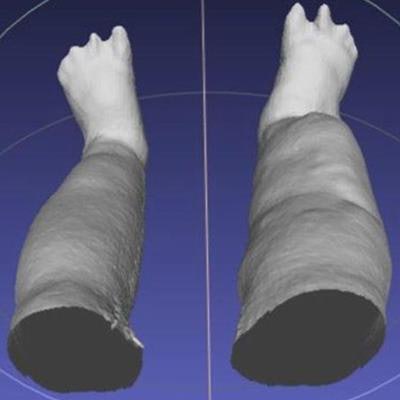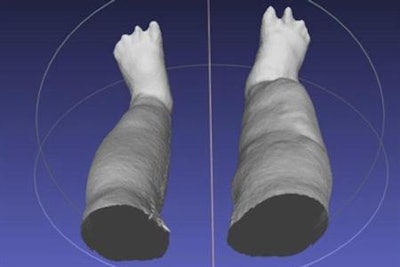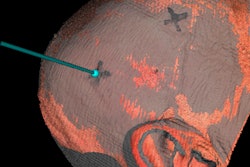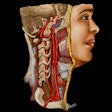
A portable infrared sensing device can produce rapid and accurate 3D scans of legs affected by elephantiasis, according to a study published online October 16 in the American Journal of Tropical Medicine and Hygiene.
Elephantiasis is a condition characterized by extreme swelling and deformity of the legs. Precise measurements of the legs are required to assess the severity of the condition, but current methods are difficult to standardize and are unreliable, according to Dr. Philip Budge, PhD, and colleagues from Washington University School of Medicine in St. Louis. The common practices of tape measurement and water displacement often prove challenging due to bumpy, uneven skin and the presence of open wounds.
Inspired by motion-sensing gaming technology, the start-up company LymphaTech developed a portable 3D scanner that consists of an infrared sensor mounted on an iPad -- the sensor is similar to what's found on Microsoft's Xbox Kinect video game console. The researchers from Washington University then tested this device on 52 patients with various stages of lymphedema at a clinic in Galle, Sri Lanka.
 The portable infrared scanning device creates a 3D reconstruction of swollen legs. Image courtesy of Budge et al, Am J Trop Med Hyg 2017.
The portable infrared scanning device creates a 3D reconstruction of swollen legs. Image courtesy of Budge et al, Am J Trop Med Hyg 2017.The group found that the portable scanner produced leg volume and limb circumference measurements just as accurate and precise as other techniques but in a fraction of the time. The scan took an average of 2.2 minutes, compared with 7.5 minutes with a tape measure and 17.4 minutes with water displacement.
What's more, the portable scanner offers the convenience of acquiring accurate limb measurements directly in patients' homes, according to Budge.
"This is important because it will allow doctors and researchers to take very accurate limb measurements in developing nations, where there are often limited tools to monitor swollen limbs," he said in a press release. "It worked so well that it has been added as a measurement tool in a future clinical trial in which we are collaborating."



















